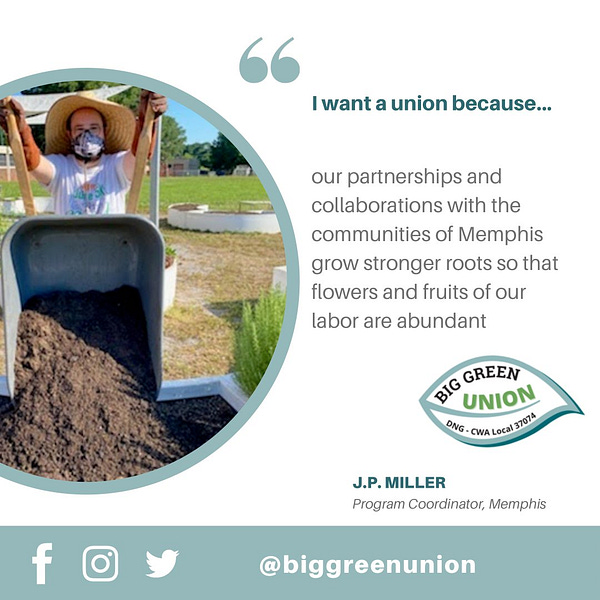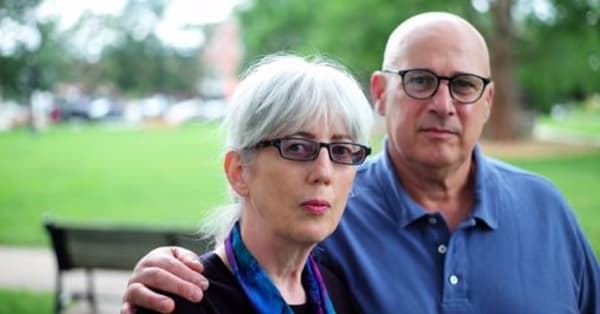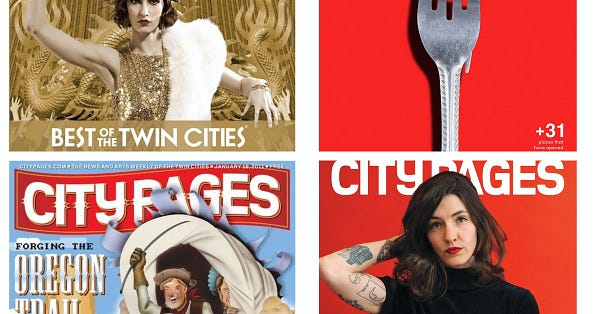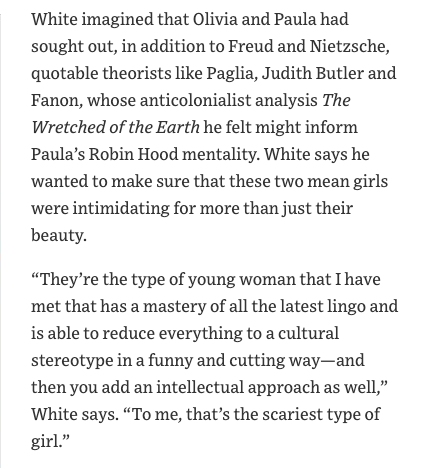All we want is to work with them to make the company better
but they’ve just been fighting us since day one.
Holy shit it’s the third anniversary of Hell World this month. To celebrate and for one day only I’ll make it real cheap. $4 a month / $45 a year good until tomorrow. Pay for your music. Pay for your porn. Pay for your journalism. Please and thank you.
Down below I’ve got an interview with one of the former editors of City Pages about the venerable alt weekly suddenly being shuttered last year and some of the staff’s new effort to relaunch as a worker-owned publication in the model of Defector. You can also jump to that story directly here.
First up a story about the Kimbal Musk-founded nonprofit garden education organization Big Green combatting its workers’ attempts to unionize.
All we want is to work with them to make the company better
but they’ve just been fighting us since day one.
In June of this year employees of Big Green — a nonprofit organization that works with schools in cities around the country to provide opportunities for students to learn and grow food in hands on working gardens — announced their intentions to unionize. “We believe that working in a collective manner is the only way we can meet the goals set forth by Big Green,” they said in their mission statement.
Those goals are “to support student well-being, food literacy, and social-emotional learning while expanding partnerships and developing programming that impacts the whole child.”
To the employees’ surprise, management of the company, which was founded in 2011 by Kimbal Musk, the multi-millionaire brother of Elon Musk, said they would not voluntarily recognize the union. In the meantime they’ve hired what the employees call “union busting” lawyers to frustrate the process and poke holes in their petition.
“They’re really trying to fight this as much as they can instead of working with us,” Emma Dietrich, a program coordinator in Detroit told me. “All we want is to work with them to make the company better, but they’ve just been fighting us since day one.”
“There’s been a lot of recent one-on-one meetings to discourage employees talking to each other about unions, to discourage employees from talking to the media.”
In the meantime employees have filed a handful Unfair Labor Practice Complaints against the Colorado-based company with the National Labor Relations Board, including one for a violation of section 8(a)(3) of the National Labor Relations Act which prohibits “discriminating against employees because of their union activities or sympathies.”
Odie Avery, a project manager also in Detroit, told me he was suspended from taking part in any work activities until the end of September.
“Since we’ve been speaking out, several of us have been reprimanded for our social media activities, myself included,” he said.
While both Avery and Dietrich say they love working for the company and believe in its mission, among other complaints they say they were exceptionally rankled by the way Big Green treated workers over the last year and a half under Covid.
“A lot of people were furloughed and had their healthcare taken away during the pandemic,” Avery said. “I was not comfortable with that. Unfortunately because we did not have any power as a unit there was nothing we could do. I feel like had we had a unit in place at that time we really could have stood up for ourselves and our coworkers and made sure that no one had to be left without insurance during a global pandemic.”
I spoke with the two employees about their unionization effort and how the company has responded in recent weeks, and about their hopes to resolve the situation amicably.
For people who aren’t familiar, what does Big Green actually do?
Avery: We are in seven cities across the country including Los Angeles, Denver, Memphis, Chicago, Indianapolis and Detroit. We’re pushing a little over 700 gardens nationwide. We’ve been building these gardens to teach kids about real food, how to grow vegetables, and to work with them to develop healthier lifestyles and eating habits. My role as a project manager is I work with a school to determine the best location on their property for a garden, and how to incorporate that garden into their activity circulation, overseeing the construction with a contractor to construct it and get it going. After that it is handed off to program coordinators like Emma.
Dietrich: My role is sort of a liaison for every school that we work with, which in our region is fifty plus schools. I work with school administrators and teachers to get students out into the garden, get them using it and maintaining it. Then we work to implement the different Big Green educational programs in the gardens.
What were the steps that brought you to the point where you started talking about organizing?
Avery: It started about six months ago with a small group, then expanded. We have a set of collective goals, and also some individual reasons for wanting to pursue this. For me personally, things were great with the organization prior to the pandemic, but how some things were handled during the pandemic, for me, was a trigger to say, ok, this is not acceptable. Something should change. A lot of people were furloughed and had their healthcare taken away during the pandemic. I was not comfortable with that. Unfortunately because we did not have any power as a unit there was nothing we could do. I feel like had we had a unit in place at that time we really could have stood up for ourselves and our coworkers and made sure that no one had to be left without insurance during a global pandemic. I would have gladly taken a pay cut if it meant Emma or any other colleague was able to stay on. It's things like that. Also not having a voice in the way things go and a lot of decisions that come down from above that directly affect us, whether it's the pandemic or just general operating procedures. We’re the boots on the ground. We work with the teachers, in the communities, we build these relationships, but then we get directives from above that challenge the relationships we've been working on.
Dietrich: In general we love what we do and love working with schools and kids and teachers. We want Big Green to succeed. In order for that to happen our union really believes that decision making at the company should be a more collaborative process, where employees — boots on the ground like Odie said — in these different regions, have a voice on how we’re implementing programs, and how we’re interacting with schools and communities. We just really want more of a voice, and some other specific things as well.
How many employees were furloughed? And how many are on board so far with organizing?
Avery: I know at least two program coordinators and one regional director were furloughed. We’ve had a mass exodus. A lot of people have left the organization in the last year. It started in the beginning of the pandemic with the furloughs. Right after that, within probably a month and a half window, several of our regional directors I guess saw the writing on the wall and resigned to move on to something else. Our regional directors in Chicago and Detroit resigned. The one in Indianapolis was furloughed and not asked back. Our regional director in Colorado resigned. The director in Memphis stayed on board but was promoted to a national position. There were also probably at least ten program staff in regions that have since left the company in that time. Many with grievances toward the organization that they felt they could not work with.
What sorts of grievances?
Avery: There are some outstanding unfair labor practice violations that have been filed and are ongoing. Since we’ve been speaking out several of us have been reprimanded for our social media activities, myself included. I think a lot of people, specifically myself, we’ve been asked to give a lot of input for processes in working groups, but none of that ever goes anywhere and decisions are just made from the top down with no consideration for what’s actually going on in the communities we serve. There were twenty of us organizing to start, but since then several have left. There are eleven of us now. We’re small but mighty.
When our petition was filed, Big Green challenged it. They said none of us are eligible to join a union because we all function in supervisory capacity, which is not the case. Now we’re waiting to get a hearing with the NLRB to settle the issue of whether we are supervisors or not. Once that gets cleared up, and we hope they rule in our favor, we hope to get a vote schedule.
That’s just one of the first classic gambits management tries to pull right? No, you can’t even unionize, you’re not eligible to.
Dietrich: They have two main qualms with our petition. The first being that we’re all managers in some capacity. The other is that we are all in different regions of the country and have slightly different duties, even though we technically have the same job title. And for that reason they say we would have to form separate unions. For me I would be a union of one person, which is really bonkers. They’re really trying to fight this as much as they can instead of working with us. All we want is to work with them to make the company better, but they’ve just been fighting us since day one.


What about compensation and benefits?
Dietrich: I think in collective bargaining we will hopefully ask for equitable compensation, cost of living raises, 401k matching, things like that.
Avery: A lot of this has been brought up in discussions, but until we get to the bargaining table there's no point in focusing heavily on that. We just want to get recognized, and for them to realize we’re coming to this in good faith because we do love this organization. We do believe in the mission, and we want to see these communities we work in thrive.
How much of a hand does Kimball Musk play in the organization?
Avery: He’s the chairman of the board, founder, CEO. I guess the most frequent interaction is when he has an initiative that comes down from him, then we get brought in to make that happen. He’s pretty active, I believe, in fundraising, which we’re super grateful for. Without that we can’t keep going. He’s not necessarily active in the regions. Everything is funneled through the national office. We have a president and COO who are active. But sometimes we get handed down initiatives from above that we on the lower rung have questions about, why this particular thing is happening at this particular time when there are so many other things of higher importance to the communities, so there’s been some challenges there when those directives come down.
There seems to be a lot more organizing going on of late in disparate fields. Is that a current that you all were in tune with and sort of got a push from to get the ball rolling?
Dietrich: There has been precedent now for small nonprofits to unionize. Another garden education nonprofit in NYC unionized last year. I think those groups were an inspiration for our group. Seeing why they unionized, and what a union at a small nonprofit looks like helped me to understand the power of a union in such a small business when I typically think of them being for a lot larger industries like United Auto Workers or something like that. Seeing other workers unionize is definitely an impetus for us. That helped encourage me.
Avery: For sure. So many people got shit on during this pandemic. A lot of people got laid off and were at home and didn’t have anything better to do than really explore what’s possible. And as people started organizing throughout the pandemic it was like, ok, this is possible. We can do this. For me too seeing other small nonprofits, especially those with the same mission and goals and objectives as ours, that gave me even more confidence in our ability to push this forward. Let’s do this and see it through. Something’s gotta give. Things are not great. And if you lose all your employees and you have to start all over again that doesn’t help the communities we’re working in and the people we’re trying to educate if there’s constant turnover. So yes definitely the social climate opened our eyes to what is possible.


I don’t know too much about the nonprofit world. I wonder if there’s even more pressure from top down to sort of “take one for the team” “we’re all in this together.” That type of shit bosses say in all industries. Is there more of that sort of guilt?
Dietrich: I think sometimes there’s an expectation that because the work is mission driven that employees don’t want to be paid as much or compensated fairly. “The mission itself is payment.” “The love and the passion is fulfilling enough.” In reality there’s all the normal workplace dynamics. When power dynamics get out of control you’re going to need something like a union to restore balance I think.
What would you like to see from people who are sympathetic to your goals?
Avery: We’re at the point where public support is key, and people in the communities supporting us to get the word out in whatever way they can. It’s a high profile organization in a way considering who our founder is. That’s a point for us to, in a way, leverage the high profile name associated with this organization.
Well the name doesn’t tend to be sympathetic to unions best I can tell.
Avery: For sure. Like I said, several of us have been reprimanded for talking about this on social media.
What was your ULP filing?
Avery: Last week I made a social media post and I tagged the organization and the union and Kimbal. I was told I violated a work policy that I can't talk about union activity during work time. I was told I violated a policy because there were other coworkers in the photo I posted in the background. And that I violated proprietary information policy by tagging another partner who was present at this public event we were at. I was told I cannot participate in any activities until the end of the quarter, September 30. It’s about to be fall. If Covid holds off we’re going to be back in schools and I’m leaving my coworkers in Detroit here shorthanded going into our busy season. In my case with this reprimand I believe I'm being targeted and intimidated for my actions.
And they’ve hired lawyers to intimidate you?
Dietrich: Yeah they’ve hired two very good lawyers to fight our union and pick apart our petition. There’s been a lot of recent one-on-one meetings to discourage employees talking to each other about unions, to discourage employees from talking to the media. Things like that.
Avery: What we’re trying to understand internally is why they are fighting so hard. I mean I think we know the answer, but... This could have been a simple process. We just want to be at the table and have conversations about what our communities need.
Real quick break here to say as always absolutely fuck the police
Fuck it we have to own the thing ourselves
From the ashes of City Pages comes RacketMN
In October of 2020 City Pages, the alternative news weekly that had been covering the Twin Cities for over forty years, was shutdown abruptly by its owners. It was just the latest in a long line of alternative weeklies that have been unceremoniously dumped by disinterested or incapable ownership, in this case the company that also own the Star Tribune. Surprisingly or not depending on your level of cynicism about such things, the company, owned by billionaire former Timberwolves owner and former Senator Glen Taylor, rebuffed any efforts by the staff and other interested parties to explore options to keep the paper’s legacy alive or even available online. Now, not quite a year later, a team of former staffers have said fuck it, we’ll do it ourselves. Their new effort, called Racket, will launch later this month as a worker-owned media property based in part on the model of the folks at the post-Deadspin site Defector (whose own group quitting and rebirth I covered here and here.)
I spoke with Em Cassel, the last editor in chief of City Pages, about their new effort. (Back in May Cassel reported for Hell World on the real reasons restaurants workers around the country were declining to go back to work.)
Remind us of the basics of City Pages shutting down?
The Star Tribune bought City Pages in around 2015. They shut it down in October 2020, right during the pandemic of course. They had some interested parties, including us, reach out about purchasing it, using the name and somehow carrying on the legacy. They were not interested. Didn’t want to attempt to run it as online only. Really made no effort whatsoever to preserve the journalism that was there or the legacy that was there. Some interested web guy made an archive of the website that basically mirrored it, to keep the decades of journalism alive so people could access that history. They sent him a cease and desist as well. So they were just absolutely uninterested in any alternative news legacy. And now ten months later we’re back!
So the City Pages site is not online at all anymore?
The site is literally not online right now. If you go to CityPages.com it brings you to a landing page that tells you it was shut down, oh, and also you can buy merch here if you’re interested.
That’s super cool! That same thing happened to the Boston Phoenix when it shut down. It just wasn't important to anyone, besides a bunch of people who used to work there, to keep the 60 plus years or whatever it was of reporting available. It was just wiped from the internet. Although there’s some sort of barebones janky version of it up again now that I look. Anyway it’s good because most of my goofy 2000s emo record reviews are gone now.
At least you were able to tell on yourself by starting Emo Night.
True. By the way, we're doing the first one again coming back in a couple weeks and I really don’t want to do it I think. I’m kind of scared.
That’s gonna be a great chance to get Covid.
I know and for such a stupid reason. Is the Star Tribune owned by one of these ghoulish money companies? Did they get bought up?
It’s even more ghoulish, they’re owned by billionaire Glen Taylor. He was the Timberwolves owner. He’s a former Republican senator. In 2020 his net worth was reported to be $2.5 billion. He’s a run of the mill Republican billionaire. I don’t have too much else to say about him.
It’s very good for the rich fucks when there’s no alternative weekly in their city.
It almost seems like they have a vested interest in making that happen.
You were the editor in chief when City Pages shut down?
I was the acting EIC since November of 2019. I officially got the job in January 2020. Two months later it was Covid. Six months later we didn’t exist anymore.
All of this is even more insulting considering the fact the city and the state have become the flashpoint of the biggest civil rights movement in decades. Nobody thought it would be good to have an alternative news source in the city? It boggles the mind.
It does. I think a lot of people thought it would be good to have an alternative news source, but those people aren’t the ones on the business side of the Star Tribune. We were out there covering everything last summer, from the protests themselves, the uprising, to the aftermath, the social justice reckoning, to the mutual aid movements that popped up afterwards. We were really on it right up until the end there.
What was the official line when the news was broken to you?
I got a zoom call from my boss, our publisher, who said, you know, basically I’m giving you a heads up that in twenty minutes I’m gonna schedule a meeting with the whole team. The news is this is the end. We got it via video call, like so many other people who lost their jobs in 2020. It was an absolute shock. There was no warning. No conversation about what could be done to preserve it. It was never to my knowledge a consideration that we go online only, that we consider any other distribution model. The company basically said in their own reporting that it “could no longer sustain City Pages after the coronavirus outbreak forced closing and downsizing of the events, nightclubs, bars, and restaurants that were it’s chief advertisers and financial base.”
In a way there’s truth to that I suppose. That sort of shit killed tons of alt weeklies around the country. Rock clubs and restaurants and so on stopped needing alt weeklies to advertise. It’s part of a trend for the past twenty years.
Yeah. Monika Bauerlein at Mother Jones, who used to be a City Pages staffer, wrote a really good piece after the closure about the sort of general decline and then steep cliff that alt weeklies have been on. We are not the only ones, we are a recent loss in a long line of very tragic losses. But it doesn’t feel good to be part of that legacy.
It’s interesting because I was just at the alt weekly AAN conference in Boston a couple weeks ago as like the “here’s how to do a newsletter” guy on a panel. Sure enough here’s an alt weekly basically turning into a newsletter.
Yes. We will have a website, but newsletters will be a big component of that. I think we’ve seen the rapid success of places like Axios, with the idea being like, get people in their inbox, be there first thing in the morning. It’s just the 2021 version of getting the paper on your stoop every morning. It seems like a no-brainer.
And from what I understand you guys are also going to share Axios’ Beltway insider centrist politics right?
Totally. We love the Democrats. The Democrats are perfect.
How big is the staff now?
Four of us. All former City Pages editors. At the end there weren’t that many of us in the newsroom as it was. I think there were twelve of us when we shut down. Now there are four.
What will you focus on?
A lot of it will be lefty politics. We are going to keep covering the labor movements going on in the Twin Cities, especially in the restaurant industry and all these previously not very unionized spaces. The other part of that is local arts events, music, all the things that make a city a vibrant and diverse and interesting place to live, which is totally missing from the current media universe. It’s a gaping hole.
You talked to some of the Defector folks about how to pull this off?
They turned out to be in many ways the blueprint for what we’re doing. They worked with the same web design and production firm that we worked with. We asked Tom Ley at Defector for advice a handful of times. I can't thank them enough to be willing to be the torchbearers for this digital media movement.
It seems like we talk about this as a trend now, people picking up from shuttered more traditional digital outlets and turning them into their own smaller thing. It almost makes more sense this way though. In my day at the Dig and Phoenix, they both had these big offices, prime real estate in the middle of an expensive city. You don’t need that at this point. Resources could be better spent on paying staff and freelancers.
That’s exactly it. I’ve always been baffled by the fact that so many media organizations are tied to the east coast in big expensive cities where real estate is unattainable and the cost of living is way too high. You just don’t need any of that stuff. We’re already in the midwest, shit is cheaper here, but we can make it cheaper still. We don’t have a huge footprint. We don’t need to be downtown. We’ve all got Gchat, we’re fine.
Similar to Defector, are you all co-owners?
It’s a four way split between the four of us. Good rates for freelancers as well.
Will you expand on that if you grow?
That would be the hope down the line. We want to make sure that it works first before we get anyone else to sink with us again.
And a mix of subscriptions and advertisements?
The idea is the advertising should be unobtrusive, none of that shit you see everywhere like “one weird trick!” We’ll try to be more conscious about it than that. It seems like without having some amount of advertising you’re leaving money on the table. It’s just about being a little more intentional.
I’ve toyed with that idea myself but I feel like everyone would get pissed off at me. Obviously I wouldn’t take ads from fucking Raytheon or whatever.
That’s part of it. It gives us an interesting opportunity to get rid of the stuff that was not serving us at City Pages at the end. We had to take ads from some fucking groups I would not have taken ads from. We’d be like… Jesus, these people? So it’s great to not have to do that this time around.
Are you optimistic about the state of indie media? You must be if you’re jumping in, but it’s just been years of constant body blows. It’s hard to keep your head up.
It absolutely is. I think so many people in this industry feel this axe looming over their heads. It’s been shown time and time again that you are disposable to your company. You could be sold to some vampiric hedge fund any moment. But the thing that gives me hope about this specifically and other writer editor owned publications like us is… we were in a union position at City Pages. We were in the Star Tribune's guild. That didn’t save us at the end. I think what is interesting is that now people are like, well fine, fuck it, a union won’t even protect us, we have to own the thing ourselves. I think that’s an interesting shift that’s even a degree further than before.
Ah fuck.

I’m telling you do not read the quote tweets of that tweet. Whatever you do don’t do it. Fair warning.
You may have read something about this story before but if you haven’t do so asap it is absolutely fucked.


Come for the outrageous criminal behavior stay for the completely acceptable legal criminal behavior.
The investigation also found that former CEO Wenig had made “inappropriate communications” but did not have advance knowledge of the harassment and stalking. Wenig,who was not charged, was allowed to resign in September 2019 with a compensation package worth $57 million; the Steiner scandal was a “consideration” in his departure, the company has said.
If you’re watching White Lotus this is just delightful.











